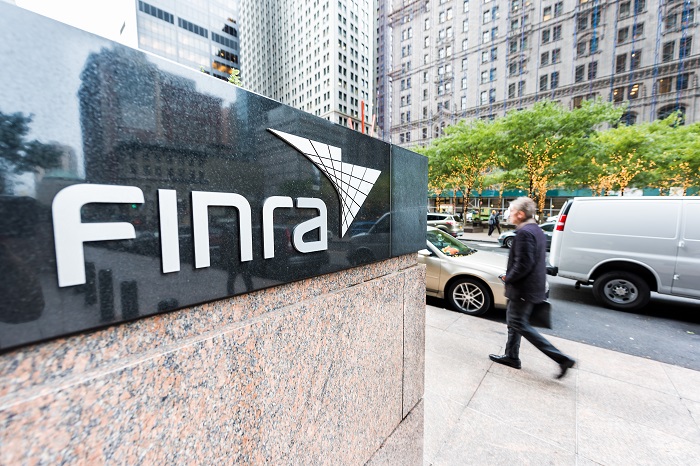 The Massachusetts Superior Court, Business Litigation Session, recently denied a broker-dealer’s motion to vacate a Financial Industry Regulatory Authority (FINRA) arbitration award requiring it to pay attorneys’ fees to its former employees, holding that the parties’ mutual request for attorneys’ fees in an arbitration can provide the requisite legal basis for an award of attorneys’ fees.
The Massachusetts Superior Court, Business Litigation Session, recently denied a broker-dealer’s motion to vacate a Financial Industry Regulatory Authority (FINRA) arbitration award requiring it to pay attorneys’ fees to its former employees, holding that the parties’ mutual request for attorneys’ fees in an arbitration can provide the requisite legal basis for an award of attorneys’ fees.
A copy of the opinion in Credit Suisse Securities (USA) LLC v. Galli et al is available at: Link to Opinion.
The respondents were formerly employed by a financial services company as financial advisors. On June 8, 2017, the respondents filed a Statement of Claim against the company with FINRA alleging violations of the Massachusetts Wage Act and related contract-based claims stemming from their assertion that the company failed to pay deferred compensation they claim they had already earned. In addition to denying the claims, the company asserted counterclaims alleging the respondents breached their employment contracts with the company.
In their closing arguments, the respondents discussed their request for attorneys’ fees, claiming a right to recovery of those fees pursuant to the Wage Act and also because the company was seeking “related transaction costs, interest and fees” in relation to its counterclaims. The respondents maintained that, since both parties were requesting attorneys’ fees and costs, the arbitrators had the authority to award fees to the successful party. In its closing argument, the company stated that “we do not think there is any legal basis for an award of fees and expense in this case” but added that, if the panel were to award fees to the respondents, the fee application they submitted was insufficiently itemized.
Following 20 days of arbitration hearings, the panel issued its decision in February 2020 (the “award”), requiring the company to pay each respondent compensatory damages and to pay each respondent the sum of $102,733 in attorneys’ fees. The award did not specifically state whether the damages were based on a finding that there was a Wage Act violation, but it also did not order treble damages, which a Wage Act violation would have required. As to attorneys’ fees, the panel stated that it was “authorized to make such an award because both parties requested attorneys’ fees in closing arguments.”
In analyzing the plaintiff’s motion, the Court noted that judicial review of an arbitrator’s decision is “extremely narrow and exceedingly deferential.” Keebler Co. v. Truck Drivers, Local 170, 247 F.3d 8, 10 (2001). A court may vacate the award only in the rare circumstance where the arbitrator has exceeded the scope of his or her arbitral authority or makes an award in manifest disregard of the law. The Federal Arbitration Act permits vacatur only “where the arbitrators exceeded their powers, or so imperfectly executed them that a mutual, final, and definite award upon the subject matter was not made.” 9 U.S.C. § 10(a)(4).
Similarly, judicial review under the Massachusetts statute is limited to determining whether the award was procured by “corruption, fraud or other undue means,” whether the arbitrator was evidently partial, or whether the arbitrator exceeded the scope of his or her authority. The Massachusetts Supreme Judicial Court has held that “[a]n arbitrator exceeds his authority by granting relief beyond the scope of the arbitration agreement or by awarding relief beyond that to which the parties bound themselves…or by awarding relief prohibited by law.” Superadio Ltd. Partnership v. Winstar Radio Prods., LLC, 446 Mass. 330, 334 (2006).
The company argued that the panel exceeded its powers in awarding attorneys’ fees. The Court disagreed. The respondents alleged violations of the Massachusetts Wage Act and breach of contract. A party who proves a violation of the Wage Act is entitled to recover attorneys’ fees pursuant to the statute. The Court rejected the company’s argument that the panel did not find a Wage Act violation, noting that it was not entirely accurate since the panel did not make an express finding one way or the other.
Nonetheless, the Court noted that the company did not directly contest the assertion that the company itself had requested attorneys’ fees and that, by doing so, had given the arbitrators the legal authority they needed for a fee award, even without a Wage Act violation. The Court held that where the parties mutually request attorneys’ fees in an arbitration, courts have concluded that the mutual request can provide the requisite legal basis for an award of fees, even though the general rule is that each party pays its own attorneys’ fees.
Thus, “[b]y itself demanding attorneys’ fees and then submitting that demand (through its Counterclaims) to arbitration, [the company]effectively gave the arbitrators the authority they would not have otherwise had to award attorney’s fees to the prevailing party.”
Accordingly, the Court denied the company’s motion to vacate and granted the respondent’s motion to affirm the award.
Photo: Andriy Blokhin – stock.adobe.com


